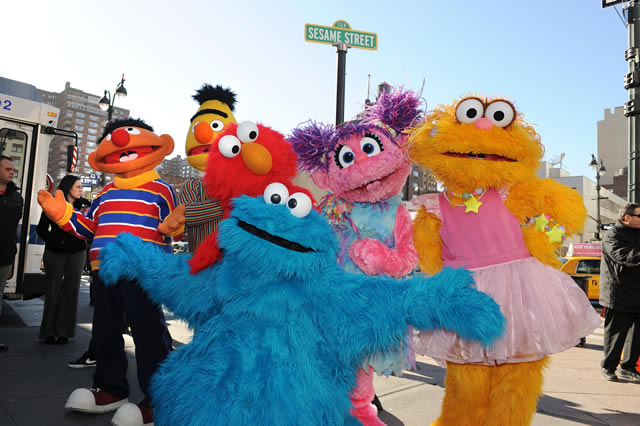There’s a new kid on the block. Muppet Lily joined Elmo and Big Bird on the cast of Sesame Street last month. Despite Lily’s bright pink face looking cheery and healthy in her debut episode, the audience found out that Lily deals with hunger and food insecurity.
Sesame Street’s newest primetime special, “Growing Hope Against Hunger,” introduced Lily in order to raise awareness of widespread hunger throughout the United States. Viewers were informed that over 50 million Americans don’t have the food they need much of the time. Seventeen million of those are children, they said—which means one in four children in America—don’t know where their next meal is coming from.
“Elmo didn’t know there were so many people who don’t have all the food they need,” America’s favorite red Muppet said with surprise.
There are children like Lily in America who suffer because of their families’ food insecurities. But there are not as many hungry children as these stats claim. Addressing the needs of those who are facing true deprivation depends on accurately diagnosing the problem.
America’s poor may suffer from temporary food shortages, but according to a September report by Heritage’s Robert Rector and Rachel Sheffield, most poor households don’t experience food insecurity.
During the recession in 2009, 38 percent of poor households claimed that they didn’t always have the food they preferred, but government data reveal that 83.4 percent always had enough to food to eat. Only 4 percent of poor children—or less than 1 million—experienced hunger at some point in the year due to a lack of food resources.
Rector and Sheffield conclude that the problem of hunger in America is frequently overstated, which makes it difficult to enact effective anti-poverty policies:
The poor man who has lost his home or suffers intermittent hunger will find no consolation in the fact that his condition occurs infrequently in American society. His hardships are real and must be an important concern for policymakers. Nonetheless, anti-poverty policy needs to be based on accurate information. Gross exaggeration of the extent and severity of hardships in America will not benefit society, the taxpayers, or the poor.
While the Sesame Street episode may not have given a clear picture about the problem of hunger in America, it did well to make its preschool audience aware of what children their age might be experiencing. The special also highlighted the impact of charitable organizations. Food pantries, soup kitchens, and community gardens are all sources for those families who do experience shortages in food.
According to Robert L. Fischer, co-director of the Center on Urban Poverty and Community Development at Case Western Reserve University, families often turn to faith-based charities in times of need:
“As families cycle in and out of poverty,” he said, “faith-based service programs tend to catch people who fall through the cracks of other safety nets.”
Churches, ministries, and other community-based institutions are well-equipped to serve people in need. Heritage’s Ryan Messmore writes that faith-based groups are especially important:
While some look immediately to the government to provide solutions, local church congregations have enormous potential to meet people’s needs and advance social welfare.…
Government should not claim and should not be granted a monopoly over responsibility for the public good.
While the problem of hunger in America is often overstated, there are still families that suffer from food shortages. Policymakers need better information to target scarce resources effectively while recognizing the significant role that community groups and churches play in helping those truly in need.































